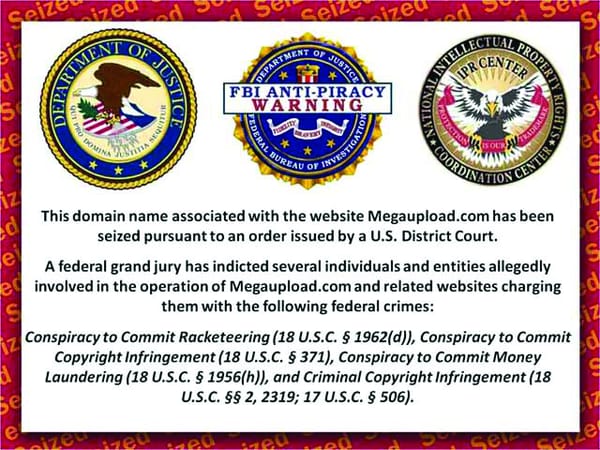The right to offend
Tagore Nakornchai thinks religious groups should face their critics head on

In case you haven’t been following the news, here’s a quick summary: the UCL Atheist, Secular and Humanist Society’s president stepped down this week after massive pressure from the UCL Union. The Society had used a picture from the “Jesus and Mo” web comic to advertise an event, and were promptly served with a takedown notice from the UCL Union. When the society shot back with a petition, 4,000 people (including Richard Dawkins) signed it overnight, and the UCLU was forced to back down. Days later, at a Queen Mary Atheism, Secularism and Humanism Society meeting, an angry man interrupted an event where an anti-Sharia Law campaigner, Anne Marie Waters of “One Law for All”, was due to give a speech. He threatened to murder the attendees and their families, forcing the cancellation of the event and the calling of campus security.
And then, on Friday, the LSE Atheist, Secularist and Humanist Society were charged with “Islamphobia” by their Student Union because members posted cartoons that made fun of the prophet Mohammed on their Facebook group. This apparently made the Society’s web-page an “unwelcoming” place for Muslim students. Who’d a thunk? I’d probably feel unwelcome walking into an Islam Soc or Christian Union meeting or discussion, even if people were being completely cool about it. There’s just something about walking into a discussion group, both online and offline, for people with views you don’t agree with that makes people relatively uncomfortable.
Religion, to many people, is a highly personal and spiritual thing – I get that, but people also seem to believe that religion should get a special status and that it shouldn’t be subject to the normal criticism that is often applied to everything else. I am a (wavering) Lib Dem, and I get shit about it all the time – I don’t see why religion should receive a special status that should protect it from all sorts of criticism that pretty much every other sort of deeply held view, whether on politics, economics, music or Tube Trains (how the fuck can you like the Northern Line?) will receive.
Look, I am not going to pretend that I have a good enough understanding of Islamic/Christian/Jewish/Hindu/Pastafarian Scripture to have a proper theological debate, but I’ve read around the subject enough to have a sensible and reasoned view of the various religions. If I take a quote out of context, or misunderstand the point of the text – then fine, feel free to correct me – but don’t tell me that I have no right whatsoever to criticize the various aspects of your religion. I’m pretty sure most Christians are happy enough criticizing Islam (or Mormons), and most Muslims are happy to criticize Christianity – only when their own religion is under a spotlight do people really get touchy.
Yes, sometimes people make jokes that could be considered insulting or in bad taste, but this is an important part of freedom of speech
I’d bet most people don’t follow all the rules in the book anyway – mainstream Christianity and Judaism have left the worst bits of the Old Testament well behind them, and nobody really follows the Koran word for word, do they?
Instead of crying foul and trying to stifle their critics through censorship or intimidation, religious groups should attempt to face up to their criticism and respond appropriately. Yes, sometimes people make jokes that could be considered insulting or in bad taste, but this is an important part of freedom of speech; cartoons are a perfectly legitimate way of expressing your views – they may not be as sophisticated or as eloquent as an academic paper or a non-fiction book, but the artist still has a right to express his views.
Freedom of Speech is perhaps the most important aspect of our modern democracy – the ability to express our doubts, concerns and criticism of current events is what differentiates the success of the Democratic World from Dictatorships. Yes, we complain about policing policy, or about the UK’s foreign policy – but it’s the fact that we can actually complain or take action that means that we have the ability to cause change and to drive and motivate people to do something about the problem.
Of course, we find a lot of things people say unacceptable and reprehensible – I find a lot of things that the BNP have to say reprehensible, and I most certainly don’t agree with the views of Christian or Muslim Fundamentalists on gay marriage – I even find them (as a straight person) slightly offensive, because it implies that having different views on sexuality is weird, or abnormal in some way. I find suggestions that atheists are immoral materialists even more offensive, yet you don’t find me running to Scott Heath’s office to demand an apology from the offending society. An important part of being able to criticize others is the willingness to accept criticism yourself, rather than living in a rose-tinted world where everything is going “just right”.
To censor anything that could be even remotely offensive, even to a small minority of students, is a dangerous precedent. It could be used as a tool to stifle legitimate debate and to force people to apologize and back down. It is, however, important to differentiate between restrictions on offensive speech and speech that would cause actual harm – nobody (except a crazy Ron Paul Libertarian who believes solely in rights and not in responsibilities) would say a person has a right to yell “fire” in a crowded theatre.
And one last thing – every other large university in London has an Atheist, Agnostic and Humanist Soicety, while Imperial’s Atheists and Agnostics Society shut down 2 years ago. It’s high time that, in a time where many government policies are increasingly influenced by religious fundamentalists (Nadine Dorries’ repeated attempts to trash school sex education classes, and to outlaw abortion comes to mind), and with the increasingly vocal religious societies inviting controversial speakers to the College, that there should be a voice of non-belief and reason in the college. I mean, even King’s has one, and, as a Medic, if GKT has something, we need one at IC!








